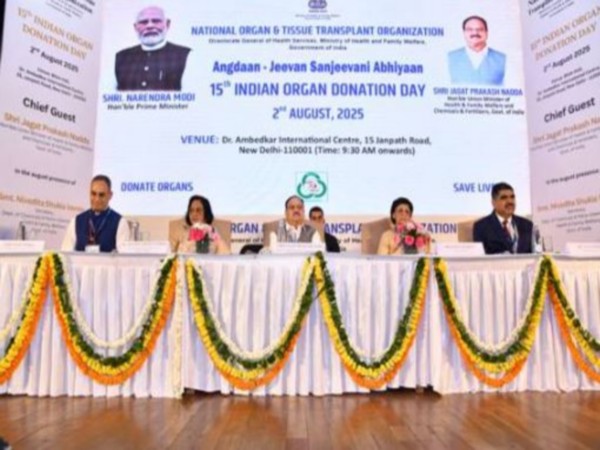By Shailesh Yadav
New Delhi [India], 28 June (ANI): The Ministry of Labour and Employment successfully averted 50 major national-level strikes through conciliation processes involving workers, representatives and employers in the central sphere, leading to a significant saving of man-days. This achievement demonstrates a 100 per cent success rate in averting strikes in the last financial year.
According to government sources, this success reflects the strength of the Tripartite mechanism in the country. The Tripartite Mechanism involves officials from the Chief Labour Commissioner, Unions and the organisation against which the strike is called.
More than 55,000 employees benefited from these conciliation processes carried out by the Office of the Chief Labour Commissioner (C) under the Ministry of Labour and Employment, Government of India.
Sources reported to ANI that a total of Rs. 1370 crore worth of relief was agreed upon through the Tripartite Conciliation process, benefiting employees in Public Sector Undertakings (PSUs), Public Sector Banks (PSBs), and Government Organizations.
One major case included the conciliation with the Cement Manufacturers Association and cement workmen represented by various trade unions, resulting in a wage settlement worth over Rs 700 crores for more than 18,000 employees in various cement manufacturing units. Another significant settlement earlier this year provided relief worth Rs. 298.3 crores, benefiting over 30,000 workers in various Gramin Banks across the country.
From January 2024 to June 21, 2024, eight major strikes were averted through the Tripartite Conciliation process. These included strikes called off by the Management of IBA vs. All India Bank Employees Association (AIBEA) & All India Bank Officers Association (AIBOA), Management of SAIL vs. its unions, Air India Express vs. their employee unions, and others.
A source highlighted that the primary objective of these conciliation processes was to address disputes and grievances in a mutually beneficial manner. Open dialogue and negotiations helped resolve misunderstandings and conflicts amicably, preventing escalation into strikes.
The successful prevention of these strikes played a crucial role in saving a significant number of man-days, maintaining productivity levels, and preventing economic losses.
Moreover, the conciliation processes fostered a harmonious working environment and strengthened relationships between workers and employers, laying the groundwork for long-term industrial peace and stability.
This success underscores the importance of effective dispute-resolution mechanisms in industrial relations, proving that with the right strategies and commitment, conflicts can be resolved without resorting to strikes, benefiting the workforce, employers, and the economy at large. (ANI)
Disclaimer: This story is auto-generated from a syndicated feed of ANI; only the image & headline may have been reworked by News Services Division of World News Network Inc Ltd and Palghar News and Pune News and World News
HINDI, MARATHI, GUJARATI, TAMIL, TELUGU, BENGALI, KANNADA, ORIYA, PUNJABI, URDU, MALAYALAM
For more details and packages
















